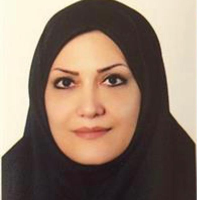Design and validation of lesson study assessment tool
Lesson study is a collaborative professional development approach in which professors work together to formulate and implement lesson plans, observe the outcomes, and enhance students' learning. This research aims to design and validate research assessment tools specifically for lesson study.
A mixed method was used, involving teaching and research experts in the qualitative part and all academic staff members from the Islamic Azad Universities of Mazandaran in the quantitative part. Thirteen targeted samples were selected for the qualitative section, while 301 samples were chosen through stratified random sampling for the quantitative section. Interviews with the 13 participants led to the identification of categories and the development of a 4-dimensional questionnaire with 77 items. The questionnaire underwent form and content validity checks and construct validity was assessed using confirmatory factor analysis. Reliability was evaluated using Cronbach's alpha and composite reliability tests.
After removing 23 questions, the questionnaire consisted of 54 remaining questions. The construct validity analysis showed that all questions had factor loadings above 0.7, and the average variance extracted exceeded 0.5. Reliability analysis demonstrated that all dimensions had a reliability above 0.9, confirming the questionnaire's soundness.
The designed research assessment tool can be employed by universities and higher education institutions to evaluate the effectiveness of lesson study, identify strengths and weaknesses, and enhance the quality of education.
Lesson Study , Validation , Design , Tool
-
The Effect of Cloud Computing on Mentoring Based on the Psychological Approach in Health-Oriented Universities of Mazandaran Province
Seyedeh Zahra Hosseini, Maryam Taghvaei Yazdi*, Mohammad Salehi
Razi Journal of Medical Sciences, -
Identifying the Dimensions of Internationalization of Health Education with an Emphasis on the Role of Managers in Its Policymaking
Fazel Karimi, Mahsa Gholamhosseinzadeh*, Maryam Taghvaei Yazdi
Razi Journal of Medical Sciences,



